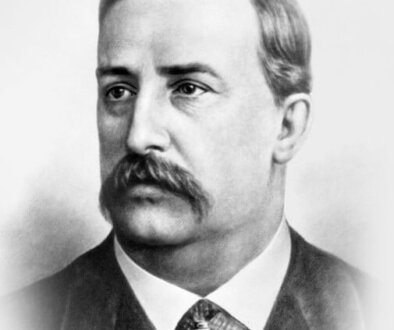Modest Mussorgsky 21 March [O.S. * 9 March] 1839 – 28 March [O.S. 16 March] 1881
Pictures at an Exhibition

By Self-scanned, Public Domain, https://commons.wikimedia.org/w/index.php?curid=4050848
Modest Mussorgsky was a Russian composer known for his bold, innovative style and works deeply rooted in Russian history and folklore. A member of the nationalist group known as The Five, he sought to create a distinctly Russian musical identity, rejecting Western European influences.
Born into an aristocratic family, Mussorgsky initially pursued a military career before dedicating himself fully to music. His compositions often featured unconventional harmonies, vivid orchestration, and dramatic storytelling. His most famous works include Pictures at an Exhibition, originally written for piano and later orchestrated by Maurice Ravel, Night on Bald Mountain, and the opera Boris Godunov, which remains a cornerstone of Russian opera.
Despite his talent, Mussorgsky struggled with financial instability and alcoholism, which led to an erratic career and an untimely death at 42. Many of his works were left incomplete or revised by other composers, particularly Rimsky-Korsakov, who edited and orchestrated several of Mussorgsky’s compositions. Despite this, his music had a lasting impact, influencing later Russian composers such as Stravinsky and Shostakovich. Today, Mussorgsky is celebrated for his ability to capture Russian history, folk traditions, and psychological depth in music, making him one of the most distinctive composers of the 19th century.
*Old Style (O.S.) and New Style (N.S.) indicate dating systems before and after a calendar change, respectively. Usually, they refer to the change from the Julian calendar to the Gregorian calendar as enacted in various European countries between 1582 and 1923.






